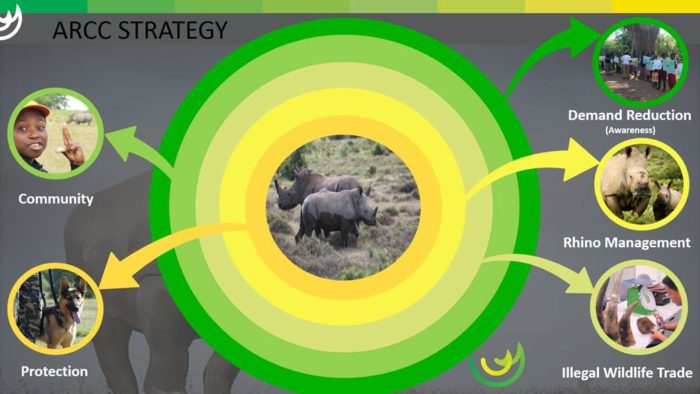
Conservationists generally agree that, while strict law enforcement is critical in deterring poachers, there is no single answer to combat the current poaching crisis. A multi-faceted approach is clearly needed, including 1) Education and Awareness, including demand reduction, 2) Species and Habitat Management, 3) Improved Law Enforcement Systems, 4) Advanced Protection Systems, and 5) Community-based, socioeconomic alternatives to poaching.
And while it is relatively easy to transplant protection strategies from the north (i.e., the Kruger National Park and surrounds) to the south, the real challenge is that it is extremely difficult to dislodge poaching once it migrates into the local communities that surround game reserves and protected areas.
The Eastern Cape of South Africa has been relatively untouched by the poaching crisis, with 80 official rhino deaths between 2008 and 2016. An association of 10 private game reserves (PGRs), called INDALO, along with several NGOs and government agencies, have been collaborating and sharing resources to address threats to biodiversity and wildlife in the region since 2002. Given the escalating rhino crisis in South Africa, this existing platform of collaboration is now being accelerated and formalized through the construction of a collaborative to advance education, protection, law enforcement, management & community efforts in the region as part of a multi-faceted approach to protecting rhino. The strategy, known as the African Rhino Conservation Collaboration (ARCC), aims to promote the cohesive efforts across 12 rhino reserves by stimulating research, discussion, pilot projects and fundraising. This effort spans private, national and provincial parks (equivalent to state parks) and provides excellent habitat for both white and black rhino.
The ARCC collaborative will enhance the protection of three subspecies of black and white rhinoceros (Diceros bicornis minor, Diceros bicornisbicornis and Ceratotherium simum simum) across this region.









